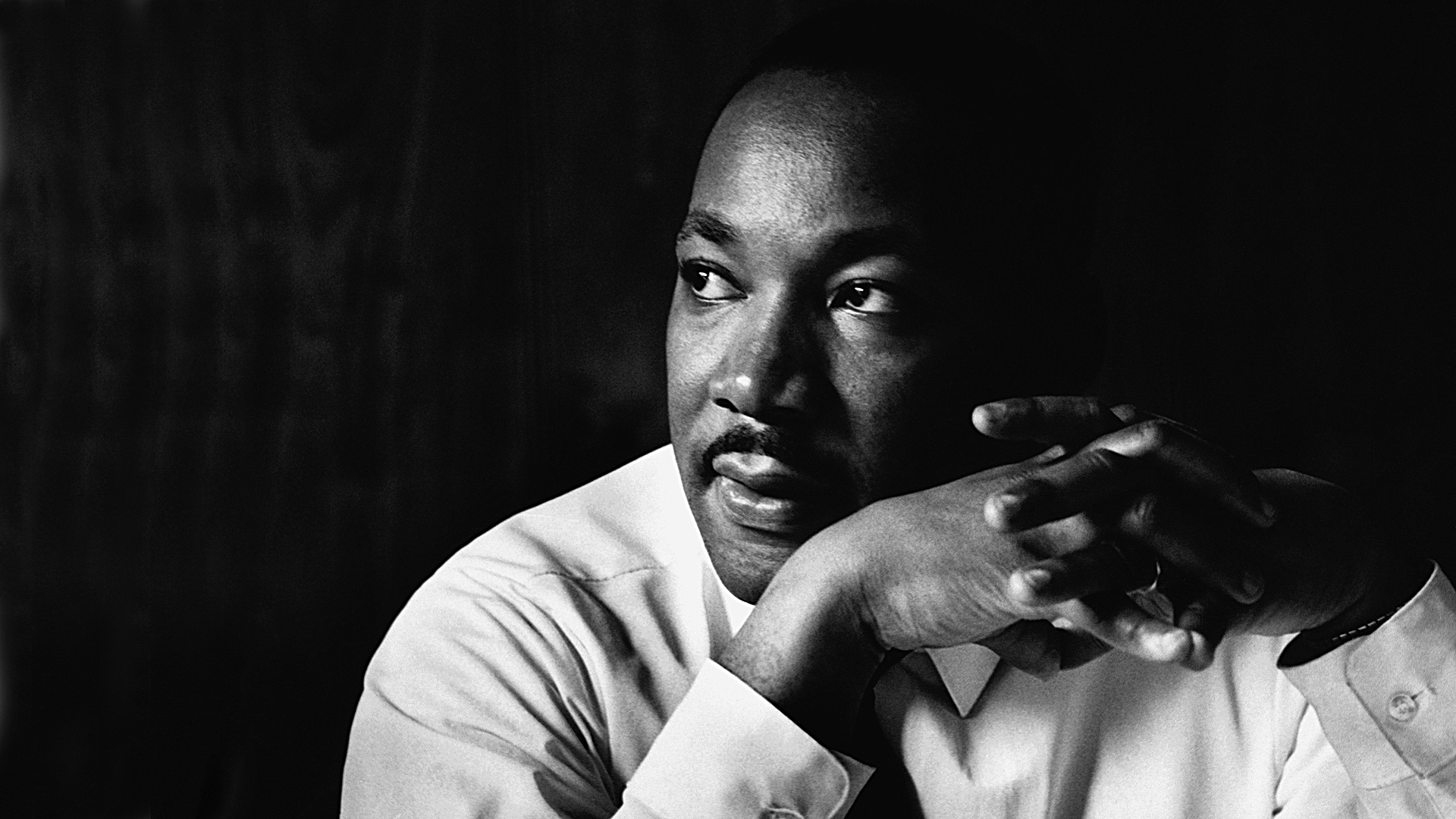Today our country pauses to honor Martin Luther King Jr. As we do so, we are reminded that this year marks the 50th anniversary of the death of the monumental civil rights leader. To commemorate this historic moment, in April the Ethics and Religious Liberty Commission and The Gospel Coalition will partner together for a special event in Memphis, MLK50: Reflections from the Mountaintop. I’m hopeful that the event will mark this significant occasion and provide an opportunity for Christians to reflect on the state of racial unity in the church and culture.
Dr. King’s leadership and justice ministry changed the course of history. With prophetic courage, he spoke to a watching world about a Christian vision of equality, justice, and human dignity, and his fierce advocacy of these convictions eventually cost him his life. Still, some would question why a Southern Baptist agency would choose to sponsor an event like MLK50 given our denomination’s history on issues of race. In light of this, I thought it would be appropriate to reflect once again upon Dr. King’s legacy and the reasons I have admired him since I was just a child growing up in the SBC.
King’s understanding of human dignity was founded upon the Christian Scriptures.
One of my earliest memories is of a substitute Sunday school teacher chastening me for putting a coin in my mouth. “That’s filthy,” she said. “Why, you don’t know if a colored man might have held that.” It might just be my imagination playing tricks on me, but it seems as though she immediately followed this up with, “Alright children, let’s sing ‘Jesus Loves the Little Children, All the Children of the World.'”
Now, this lady probably didn’t consciously think of herself as a white supremacist. She almost certainly didn’t think of herself as subversive to the gospel itself. She never thought about the hypocrisy of holding these two contradictory worldviews together in her mind. And I’m sure she didn’t see how her dehumanizing of African-Americans was a twisted form of Darwinism rather than biblical Christianity.
She wasn’t alone.
On the question of civil rights in the American Christian context, there is little question that, with few exceptions, the “progressives” were right, often heroically right, and the “conservatives” were wrong, often satanically wrong. In the narrative of the dismantling of Jim Crow, conservatives were often the villains and progressives were most often on the side of the angels, indeed on the side of Jesus.
But the question is not whether the progressives won the argument; the question is why they were able to persuade their more conservative brothers and sisters on this particular point. The turnaround is striking, perhaps nowhere more clearly than in my denomination, the Southern Baptist Convention—founded just before the Civil War to protect the “right” of slaveholders to be missionaries—where little over a generation ago, most conservative leaders were segregationists.
Americans had to choose: be an American, or be a white supremacist; you can’t be both.
Why were the voices of the civil rights pioneers persuasive, not only to mainstream America but to conservative Christians as well? The most significant factor was the mode of their argument. Beyond pointing toward the arc of historical progress, leaders of the civil rights movement appealed to biblical orthodoxy and missionary zeal as they argued for racial equality. Indeed, as historian David Chappell suggests, the theme song of the civil rights activists was as much Just As I Am as We Shall Overcome. This was true of civil rights advocates within the SBC; progressive leaders including Foy Valentine, T.B. Maston and Henlee Barnette, each argued from decidedly conservative biblical concepts. But even so, nowhere were the biblical calls for equality and justice more clearly displayed than in the speeches and sermons of the movement’s most iconic figure, Martin Luther King Jr.
King’s understanding of human dignity was founded upon the Christian Scriptures. As the struggle for civil rights advanced on multiple fronts, he spoke courageously from this foundation. In the political realm, Dr. King pointed out how the American system was inconsistent with Jeffersonian principles of the “self-evident” truth that “all men are created equal and endowed by their Creator with certain unalienable rights.” Americans had to choose: be an American (as defined in the Constitution and the Declaration of Independence), or be a white supremacist; you can’t be both.
But the civil rights movement was, at its core, also an ecclesial movement. King was, after all, “Rev. King” and many of those marching with him, singing before him, listening to him, were Christian clergy and laity. To the churches, especially the churches of the South, the civil rights pioneers sent a similar message to the one they sent to the governmental powers. You have to choose: be a Christian (as defined by the Scripture and the small “c” catholic apostolic tradition), or be a white supremacist; you can’t be both.
King was, of course, a gifted orator, and his calls for justice and equity were often poetic and deeply historic. But a great deal of the power behind King’s message came from the way that he was pressing a claim onto consciences.
He drew frequent contrasts between the promised end to the injustice of slavery and the ongoing injustice of Jim Crow. In his “Letter From a Birmingham Jail,” King, against so-called “white moderates” who counseled “patience,” pointed out “an appalling condition” that Americans were still, in large numbers, exiles in their own land. With such injustice, there was no room for the “tranquilizing drug of gradualism.”
King’s words were intentionally resonant with the cadence of the King James Bible because he was speaking a word of judgment to a Bible Belt who knew that Bible.
His words echoed the prophetic, sin-and-judgment language that we see in the Old Testament. King’s words though, were intentionally resonant with the cadence of the King James Bible, because he was speaking a word of judgment to a Bible Belt who knew that Bible. He wanted to confront consciences with what they said they believed.
But King didn’t simply preach judgment. He knew that his argument wouldn’t resonate with Christian consciences unless it appealed to their Christ-haunted imagination. That’s why so much of his language evoked a distinctly biblical view of justice.
King and many other civil rights leaders knew the spirit of white supremacy was ultimately demonic. Jim Crow repeated the Satanic strategies of trying to convince human beings simultaneously and paradoxically that they are gods and animals. That’s why the words “I Am a Man” were more than a political slogan. They were a theological manifesto. Those bravely wearing these signs were declaring that they had decided not to believe the rhetoric used against them. They refused to believe the propaganda that they were a “lesser race,” or even just a different race. They refused to believe the propaganda (sometimes propped up by twisted Bible verses) that they and their ancestors were bestial, animal-like, and unworthy of personhood.
Clearly, the struggle for civil rights for African-Americans in this country wasn’t simply a “political” question. At its root, Jim Crow (and the spirit of Jim Crow, still alive and sinister) is about theology. It’s about the question of the “Godness” of God and the humanness of humanity.
The arguments for racial reconciliation were persuasive, ultimately, to orthodox Christians because they appealed to a higher authority than the cultural captivity of white supremacy. These arguments appealed to the authority of Scripture and the historic Christian tradition. This authority couldn’t easily be muted by a claim to a “different interpretation” because racial equality was built on premises conservatives already heartily endorsed: the universal love of God, the unity of the race in Adam, the Great Commission, and the church as the household of God.
Segregation, like slavery, was shown to be what all human consciences already knew it to be: not just a political injustice or a social inequity (although certainly that) but also a sin against God and neighbor and a repudiation of the gospel. For conservative Christians, and especially Southern Baptists, we must be careful to remember the ways in which our cultural anthropology perverted our soteriology and ecclesiology. It is to our shame that we ignored our own doctrines to advance something as clearly demonic as racial pride.
Regardless of our backgrounds, it is appropriate that we pause and consider not only King’s life and legacy, but also our own past and future. As we do so, we are reminding ourselves of how far we have to go as Americans to see the promise of racial justice realized. We are reminding ourselves of how far we have to go as Christians to see gospel unity in our own congregations. And we are reminding ourselves that there’s a reason King’s words haunt us more than fifty years later; in our gospel preaching, in our efforts to esteem the dignity of all humanity, we still have something to learn from Dr. King.
Image Credit: © Flip Schulke/CORBIS








